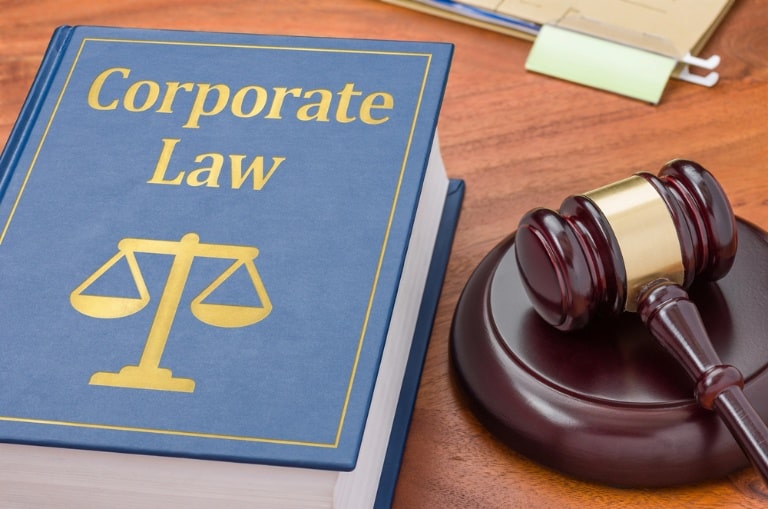The Silent Framework Behind Every Successful Business or Guardianship Case

At first glance, the worlds of corporate law and guardianship exist at opposite ends of the legal universe. One navigates the fast-paced, profit-oriented landscape of commerce—a world of ventures, partnerships, and market forces. The other operates in the deeply personal and protective realm of human vulnerability, focused on the care and well-being of individuals who can no longer care for themselves.
Yet, despite their profound differences in purpose and practice, lasting success in both domains is built upon the very same invisible foundation. This is a meticulously crafted “silent framework” of legal and ethical principles designed to ensure responsible stewardship.
This framework consistently includes:
- A clear definition of authority: Specifying who has the power to make decisions, whether it’s a corporate board or a legal guardian.
- A mandate of profound responsibility: Outlining the specific duties and obligations owed to the entity or the individual.
- A guiding principle of undivided loyalty: Demanding that all actions are guided solely by the best interests of another.
This underlying structure, often established long before any major decision is made, is the unsung hero of every thriving business and every stable, effective guardianship. It is the blueprint for responsible stewardship in any form.
The Blueprint for Commerce: Structure in Business Formation
A brilliant business concept may provide the initial spark, but a durable enterprise is built upon the sturdy foundation of its legal structure. This framework is established in the company’s foundational documents—the Articles of Organization, the bylaws, and most critically, the comprehensive Operating or Partnership Agreement. This is the critical work of a Boise Idaho business formation attorney — they are not merely filing paperwork, but architecting the very blueprint for the company’s future.
These documents are the company’s private constitution, a premeditated roadmap for governance. They dictate how major decisions are made, how disputes between partners are resolved, how profits are distributed, and what happens if a founder wants to exit the business. A business launched without this clear, deliberate structure is like a ship setting sail without a rudder, vulnerable to the first storm of conflict or unforeseen challenge it encounters. The framework provides the stability necessary for growth.
The Shield of Protection: Structure in Guardianship
In parallel to the business world, a successful guardianship is not simply an act of compassion; it is a formal, legally defined role that operates within a strict framework designed to shield a vulnerable person. The blueprint for this role is the detailed court order that establishes the guardianship.
This document is the guardian’s charter, explicitly defining their powers and, more importantly, their duties. It outlines their authority to manage finances, make healthcare decisions, secure safe housing, and prevent exploitation. The framework also demands accountability, requiring the guardian to provide regular, transparent reports to the court, detailing every action taken on behalf of the ward.
This strict adherence to the court-ordered structure is the hallmark of professional guardianship services in Boise, Idaho, transforming good intentions into reliable, documented, and legally defensible protection for the person at the center of the case.
The Unifying Principle: The Fiduciary Duty
The silent frameworks governing the boardroom and the guardianship case are animated by one of the most profound and demanding principles in the entire legal system: the fiduciary duty. This is the uncompromising ethical and legal obligation to act with absolute loyalty and good faith in the best interest of another party. It requires the person in power—the fiduciary—to set aside their interests and adhere to a strict set of responsibilities.
These core fiduciary obligations include:
- The Duty of Loyalty: To act solely in the best interests of the other party, avoiding all conflicts of interest and self-dealing.
- The Duty of Care: To make decisions with the prudence, diligence, and skill that a reasonable person would exercise in a similar position.
- The Duty of Good Faith: To act honestly and fairly in all matters related to the fiduciary relationship.
A corporate CEO owes this duty to the company and its shareholders, ensuring every decision is aimed at the entity’s success. A guardian owes this same profound duty to their ward, ensuring every choice is made solely for that person’s health, safety, and well-being. This principle is the moral compass that gives the framework its direction. It is the invisible force that ensures the authority granted by a legal structure is never abused, but is instead exercised with the highest standard of care, honor, and responsibility.
When the Framework Crumbles: The High Cost of Neglect
When this foundational structure is neglected or poorly constructed, the consequences are both predictable and severe. In the business world, a vague or template-based operating agreement fails to address a future disagreement, leading to a deadlocked company where two partners become adversaries, unable to act.
The business stagnates, value is destroyed, and the founders’ vision dissolves into acrimony. In a guardianship, a well-meaning but ill-informed guardian might co-mingle the ward’s funds with their own or make significant healthcare decisions without proper consultation, leading to family outrage and court sanctions.
This is the kind of preventable corporate implosion that lands before a business law attorney in Boise, Idaho, requiring costly litigation to resolve what foresight could have avoided. In both arenas, the failure to honor the framework transforms a position of trust into a source of destructive and expensive conflict.
Conclusion
While one world is measured in market share and the other in moments of human dignity, both business and guardianship are ultimately profound exercises in stewardship. Their long-term success is not accidental, but is instead underwritten by the same silent framework: a combination of intentional legal structure and an unwavering commitment to fiduciary duty. This foundation should not be viewed as restrictive paperwork or a bureaucratic burden.
On the contrary, it is an empowering force. It provides the clear authority to act, the ethical boundaries to ensure those actions are just, and the accountability to maintain trust. Whether a person is entrusted with the complexities of a growing enterprise or the irreplaceable well-being of a vulnerable individual, this framework is what allows them to navigate uncertainty with integrity. It is the silent, steady architecture of responsibility, enabling them to honorably and effectively fulfill the duties they have undertaken.




